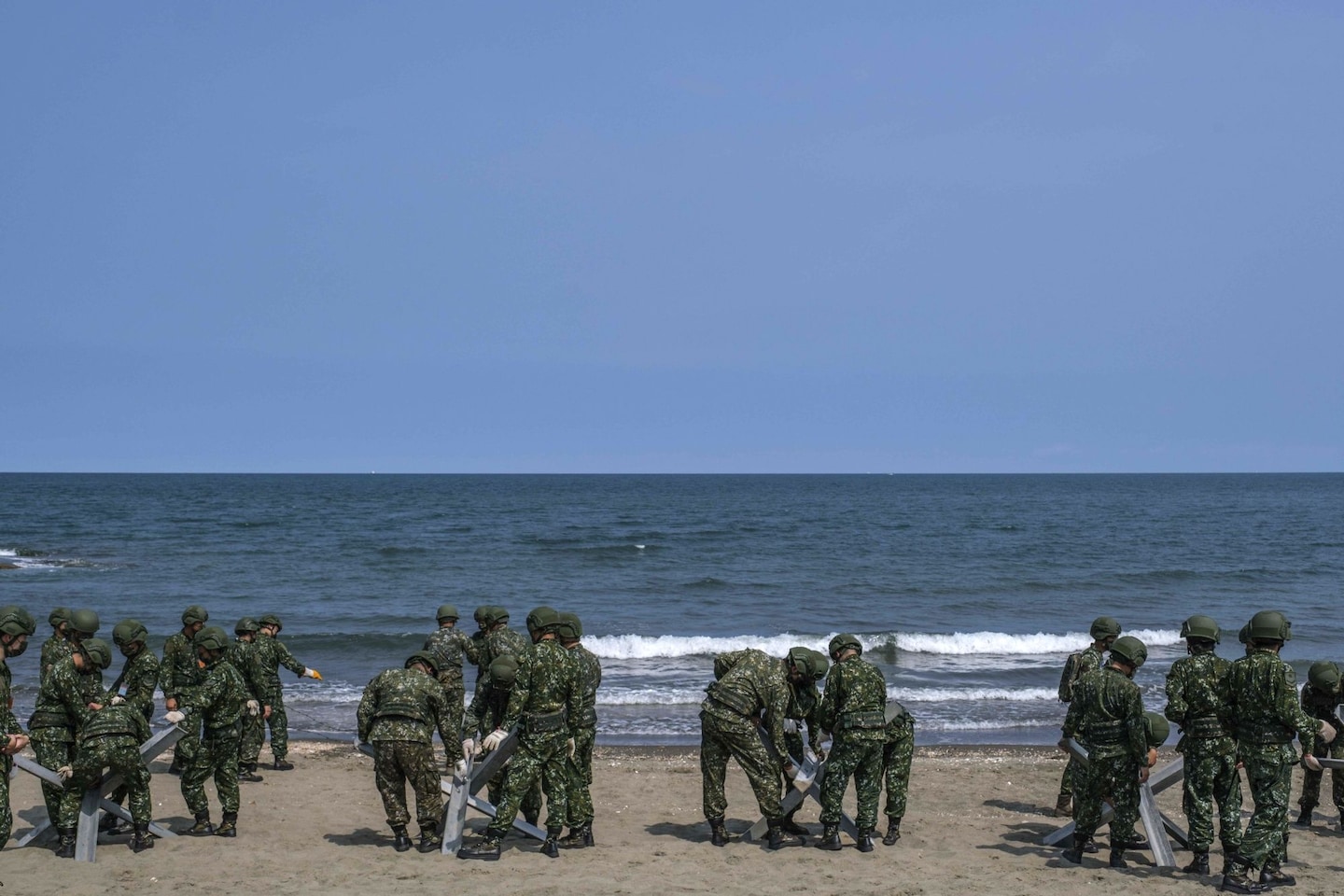“China’s expansion [of military aggression] continues to impact the international order, threatens regional peace and stability, and affects cross-strait relations,” she said. “The existing system does not meet combat readiness requirements.”
The change to a longer period of service is set to take effect in 2024. Men born after 2005 will be required to serve in the military for a year sometime after reaching the age of 19 and before turning 37. Military service is optional for women.
Over the past three decades, Taiwan’s mandatory service period shrank amid a gradual shift from state-mandated enlistment to a volunteer-based professional force. It was cut to four months in 2013 after a period of easing cross-strait tensions as the ruling Chinese Nationalist Party, or Kuomintang, pursued stronger economic ties with China.
But China’s recent menacing of the self-governing island — and Russia’s invasion of Ukraine — reinvigorated long-running debates over civil defense changes and pushed reinstating a year of military service up the agenda.
On Sunday, China dispatched a record 71 warplanes close to Taiwanese airspace, Taiwan’s Defense Ministry reported. Forty-seven fighter jets and drones crossed an unofficial boundary that runs down the center of the Taiwan Strait and until recently had been respected by both sides.
Taiwan’s military said the show of force “damaged peace and stability” in the region. It responded by scrambling combat aircraft and navy vessels, as well as tracking Chinese movements using land-based antiaircraft missile systems.
Simmering cross-strait tensions spiked to levels not seen in decades in August after House Speaker Nancy Pelosi (D-Calif.) became the most senior U.S. politician to visit Taiwan since the 1990s. The People’s Liberation Army responded to the trip by firing missiles high over Taipei and holding live-fire drills on all sides of Taiwan’s main island. Taiwanese officials called the military exercises a blockade simulation.
Sunday’s mass incursion from Chinese jets came after President Biden signed into law a defense bill that promises unprecedented American support for Taiwan’s military capabilities. The National Defense Authorization Act includes a plan to devote $2 billion annually for Taiwanese training and arms purchases, plus $1 billion annually from a category of assistance that allows the White House to send allies weapons from U.S. stockpiles.
Shi Yi, spokesperson for China’s Eastern Theater Command, called the recent maneuvers a “resolute response to the current escalation of provocation and collusion between the U.S. and Taiwan.”
The trend of escalating aggression has added urgency to long-running discussions in Taiwan about the need for a more robust and professional military service.
“It had been a widely debated topic for a long time, but faced with Chinese threats, the government was left little room to be hesitant,” said Evans Chen Liang-chih, associate fellow at the Institute for National Defense and Security Research, a state-funded think tank in Taipei.
Other major changes include raising the monthly salary for conscripts from $210 to $660 and teaching recruits how to use U.S.-made antitank Javelins, air-defense Stingers and drones that have been an important part of Ukrainian defenses against Russian aggression.
These adjustments come after a number of defense changes announced over the past year to boost combat readiness. A department to improve reservist training was established in January. Basic training programs for voluntary soldiers were extended from five to eight weeks. Those come on top of a record increase in defense spending, budgeted at $19.4 billion, for 2023.
For some in Taiwan, these efforts are raising concerns about the possibility of war. “I’m thinking about moving to Canada with my children next year,” said Liang Wen, 35, who lives in Taipei with her three sons.
She worries that one day her children, the oldest of whom is 9, will have to fight Chinese troops.
“I have been thinking about emigration since three years back, but the Chinese drills this summer made me feel that I really need to make preparations,” she said. “I used to work at a bank. The night when Pelosi arrived, I got a call at midnight from a friend asking me how to safely transfer a large amount of cash overseas. I think many people are truly worried.”
Another concern is that lengthened service may not result in higher-quality instruction. Critics note that recruits often spend the training period doing menial tasks like sweeping floors or running errands for senior officers instead of learning combat skills.
“Many people think it’s a waste of time. It doesn’t invoke a sense of honor,” said Wu Cheng-Yu, 23, an advertising undergraduate student who has yet to go through training. Among his peers, some even tried to skip service by losing so much weight that they would fail the physical examination.
Wu, in contrast, feels duty-bound to serve in the military and learn to fight. “I think it is necessary to make a sacrifice for the place where I grew up,” he said. “But it’s a shame that the training often gives people the impression that it’s like a summer camp.”



